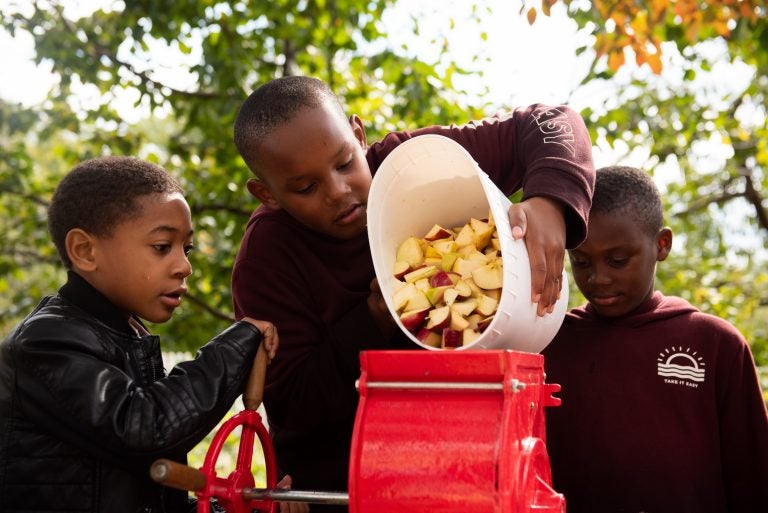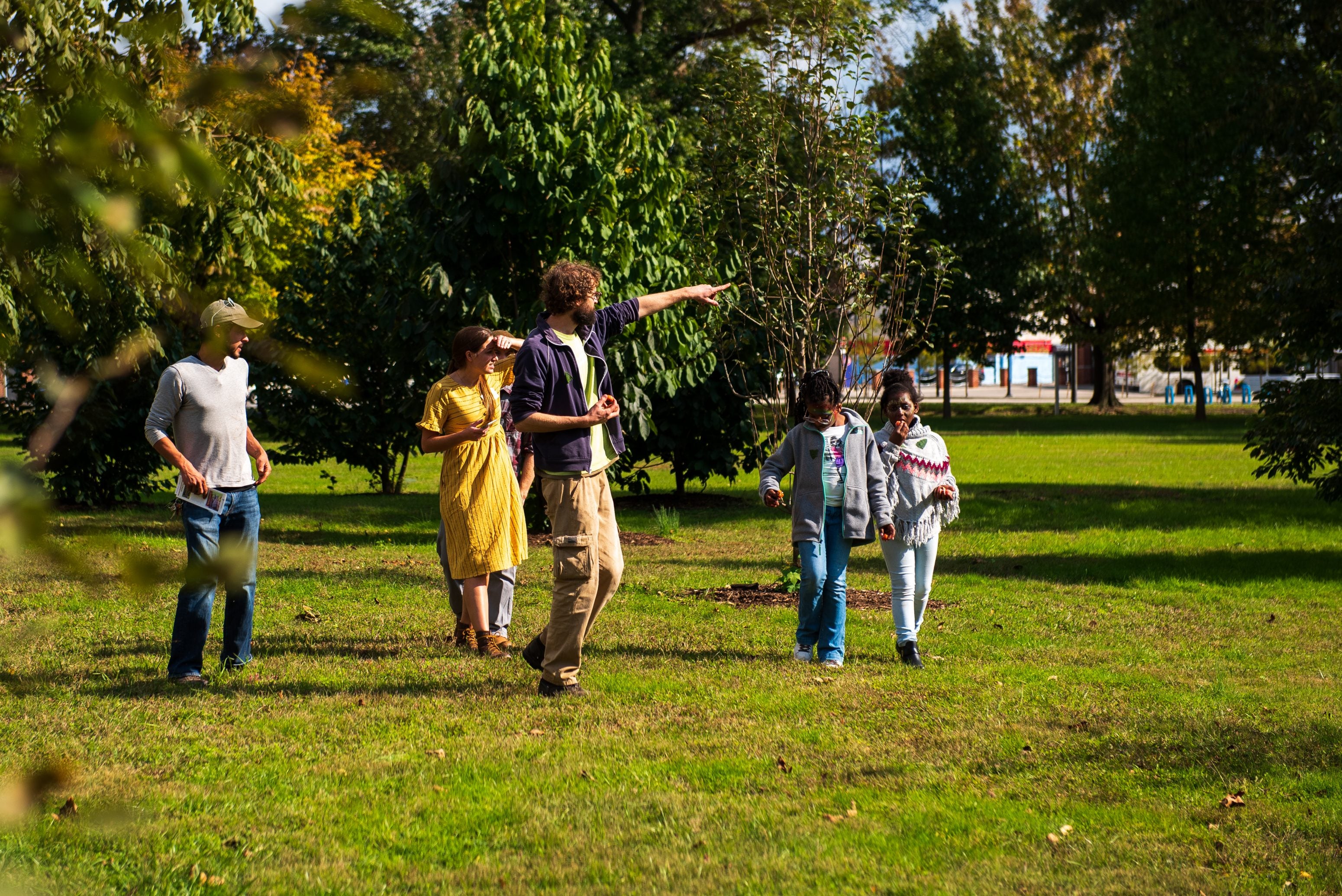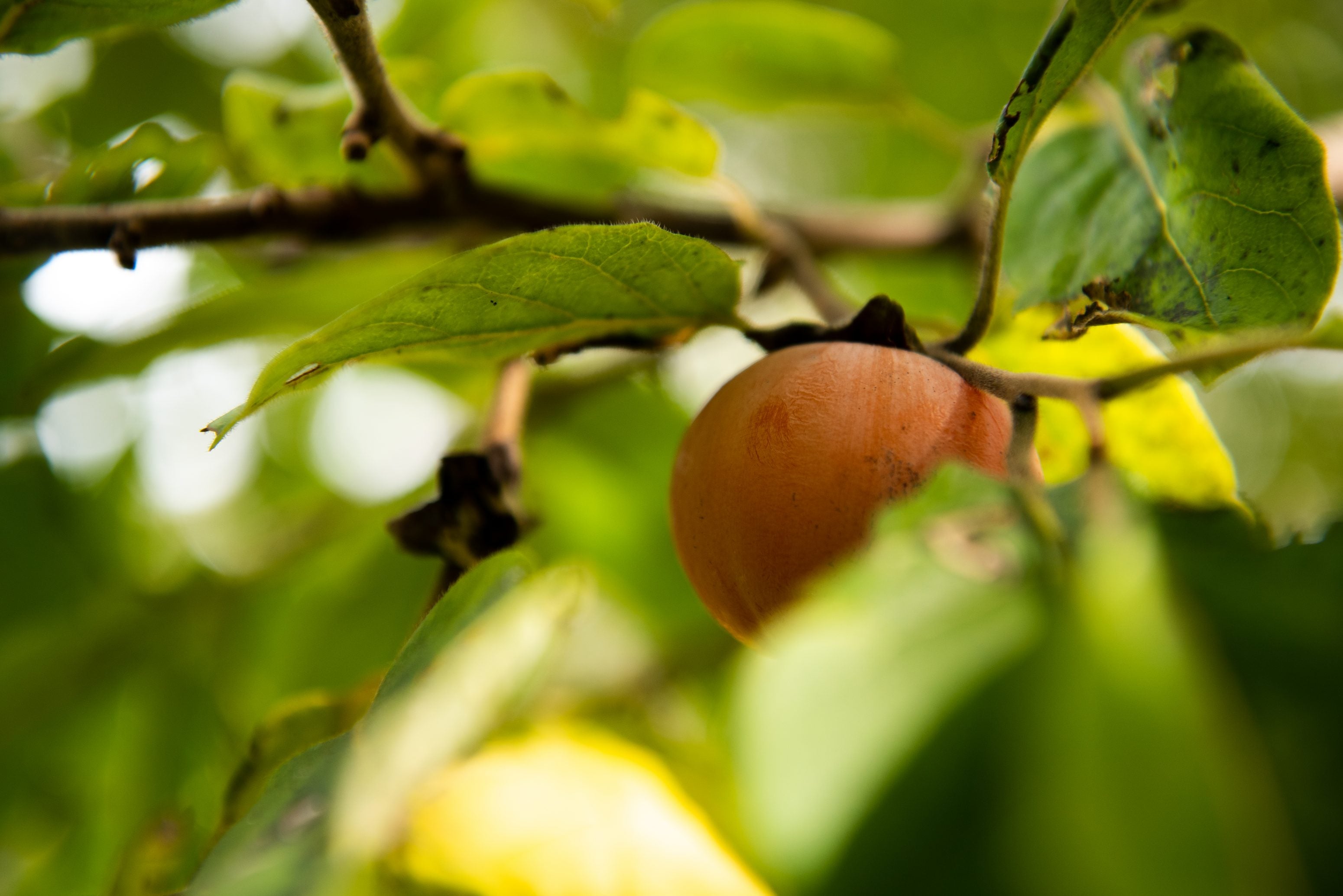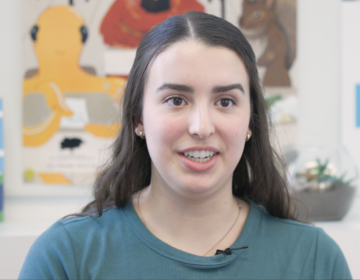A rainy 2018 yielded soggy fall harvest, Philly growers say
2018 has been one of the wettest years on record for Philadelphia.

Devin Puckett, along with Clyde and Saheir Beatty, empty a bucket of apples into a fruit grinder during the East Park Apple Festival at Woodford Mansion in Fairmount Park. (Kriston Jae Bethel for WHYY)
This story originally appeared on PlanPhilly.
—
2018 has been one of the wettest years on record for Philadelphia.
So far, the city has been under more than 50 inches of precipitation. That’s 14 more than the average.
For local growers, the wet, humid conditions mean a flood of pests and diseases.
“Every year we have these challenges,” said Phil Forsyth, executive director of Philadelphia Orchard Project, a nonprofit community agriculture initiative. “But the more rain and humidity, the worse they are.”

The 61 community orchards supported by Forsyth’s group have seen their harvests suffer under the wet weight of bad weather.
“In our orchards, we’ve had very poor apple production this year,” he said. “Lost a lot of cherries and peaches to brown rot and other diseases.”
Brown rot is a fungus that thrives in moist conditions and feeds on stone fruits. The rot thrived this year, one of many indicators of an increasingly unpredictable local climate.
Over the last decade, Philadelphia has experienced some of its most extreme weather including five of its warmest years, and two of its wettest.
Philadelphia’s Office of Sustainability says its a sign of climate change and predicts more unusual conditions moving forward.
“This summer, we’ve had one of the rainiest summers on record in Philadelphia,” said Christine Knapp, director of sustainability for the city. “And we’re just projected to continue over many decades.”

The rainy conditions may have caused frustration for local farmers, but Forsyth sees potential in the future. He says his organization has been experimenting with warm weather crops such as olives and guava.
“There’s some things to figure out about what climate change is going to mean for us,” he said.
Forsyth says he expects an official report of this year’s harvest production in January 2019.
WHYY is your source for fact-based, in-depth journalism and information. As a nonprofit organization, we rely on financial support from readers like you. Please give today.







